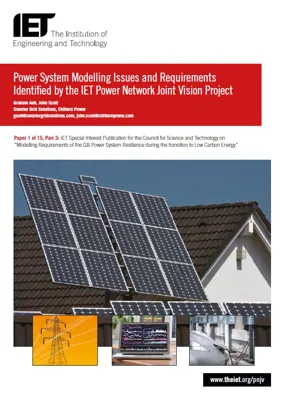Power System Modelling Issues and Requirements
This paper presents a critical assessment of the modelling implications of the main findings of the IET PNJV Position Statement and Technical Report (published in December 2013) and concludes the following:
- Power system modelling has played a crucial role in supporting the delivery of a secure and efficient power supply system in GB.
- A number of new challenges are emerging and can be expected to have greater implications in future as the sources of power generation transition towards renewable and distributed sources and the uses of electrical power increase particularly in heating and transportation applications.
- The scope of power systems modelling needs to increase to capture a variety of new generation, network, storage and consumption equipment and systems as well as market, customer and regulatory issues in a whole system context, and more responsive/stochastic approaches in the context of a far less deterministic, predictable power system.
- The challenges and opportunities of the available, future, diverse power systems data sets have yet to be fully explored and exploited to enhance power system planning and operations.
- Cross industry support and coordination is required to address the modelling challenges and in particular to bring forward proposals to support the development of the required power system modelling skills to underpin the development of the modelling platforms, tools and capabilities required to underpin the continuance, if not improvement, of current levels of security and performance in the GB power system.
- The System Architect role proposed by the IET’s expert group could include leading the specification and development of power system modelling tools to address the whole-system aspects of the emerging and future challenges to GB system security and performance.
- The System Architect might also be a key user of the power system analysis tools.

